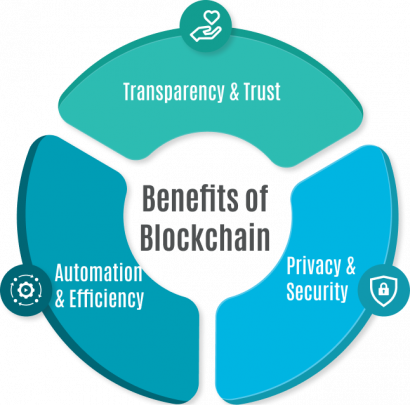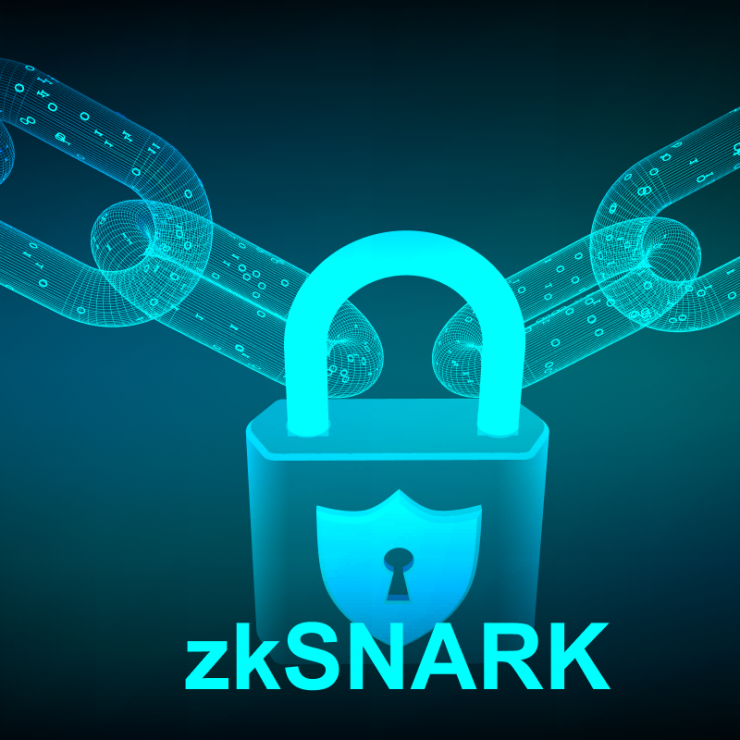Blockchain technology is no longer just a buzzword, it's a game-changer revolutionizing various industries. From finance to supply chain management, blockchain is proving to be a catalyst for innovation and progress. The marketing industry is no exception. With the rise of digital advertising and the increasing importance of data privacy and security, blockchain technology is providing new solutions for marketers to improve their campaigns and better serve their customers.
In this blog post, we'll delve into how blockchain technology is transforming the marketing industry, the benefits it offers, and the challenges and limitations that need to be addressed. So, come along for the ride as we explore the future of marketing, where blockchain technology is the key player.
Benefits of Blockchain in Marketing:
Blockchain technology is making waves in the marketing industry, offering a range of benefits that can help marketers take their campaigns to the next level. These benefits include:

1. Increased transparency and trust in digital advertising:
Blockchain technology eliminates the need for intermediaries and enables secure and transparent transactions. This creates a more transparent and trustworthy digital advertising ecosystem, where advertisers can track the performance of their campaigns in real time and consumers can have more control over their personal data. Imagine a world where consumers trust the ads they see and where advertisers can prove the effectiveness of their campaigns. Blockchain is making that world a reality.
2. Improved customer data privacy and security:
Blockchain technology enables customers to own and control their personal data, giving them more control over how it is used and shared. This improves data privacy and security, which is becoming increasingly important as digital advertising grows. Gone are the days of advertisers having free reign over personal data, with blockchain, customers hold the power.
3. Enhanced tracking and measurement of marketing campaigns:
With blockchain technology, marketers can track the performance of their campaigns in real time, which enables them to make data-driven decisions and optimize their strategies. This improves the effectiveness of marketing campaigns and increases ROI. With blockchain, marketers can have a crystal clear view of the success of their campaigns and adjust them accordingly.
4. New opportunities for digital asset ownership and monetization:
Blockchain technology enables customers to own and trade their personal data, which they can then monetize by selling to advertisers. This creates new opportunities for digital asset ownership and monetization, which can benefit both customers and marketers. Customers are not just targets anymore, they are assets, and with blockchain, they can be leveraged in new ways.
5. Increased automation and efficiency in marketing operations:
Blockchain technology can revolutionize the way businesses conduct marketing operations. By automating various processes, it can make marketing efforts more efficient and cost-effective. This can result in cost savings for businesses and also improve the overall performance of marketing campaigns. Additionally, blockchain's transparency and security can enhance trust in customer data management and supply chain management, resulting in more effective marketing efforts.
6. New opportunities for incentivizing and rewarding customers:
Blockchain technology can be used to create tokens or digital assets that can be used to incentivize and reward customers for engaging with marketing campaigns. This can help to increase customer engagement and loyalty, which is crucial for the success of any marketing strategy. With blockchain, marketers can create new ways to reward customers for their engagement and loyalty, fostering deeper relationships.
Challenges and Limitations:
Blockchain technology may be the future of marketing, but its journey to get there is not without its challenges. The technology is still relatively new, and companies that want to implement it must navigate a complex landscape of technical obstacles, regulatory hurdles, and a lack of understanding among marketers.

1.Technical challenges:
Implementing blockchain technology in marketing can be a daunting task for companies, requiring a high level of technical expertise. The technology is still in its infancy, and there are challenges associated with scalability, security, and integration with existing systems. It can be difficult for companies to find the right talent to handle the technical aspects of blockchain implementation and make it work seamlessly with their existing systems.
2. Regulation and legal considerations:
As blockchain technology is still a relatively new concept, there is a lack of regulation and legal frameworks in place. This can make it challenging for companies to navigate the legal and regulatory landscape and can be a barrier to adoption. Companies must ensure that they are compliant with all laws and regulations before implementing blockchain technology, or risk facing hefty fines or penalties.
3. Lack of understanding and education:
Many marketers are still unfamiliar with blockchain technology and its potential applications in the marketing industry. This lack of understanding and education can be a barrier to adoption and can make it challenging for companies to implement blockchain technology in their marketing strategies. This can also lead to misconceptions about the technology, hindering its adoption.
4.Scalability challenges:
Blockchain technology is still in its early stages, and it may not yet be able to handle the large volume of transactions that are required in the marketing industry. This could be a major obstacle for companies looking to implement blockchain technology in their marketing strategies. As the technology evolves and becomes more mature, it is likely that scalability challenges will be overcome, but for now, it is a significant limitation.
5.Integration challenges:
Integrating blockchain technology with existing systems can be a complex and time-consuming task. Many companies have invested heavily in their current systems, and it can be difficult and expensive to integrate blockchain technology with them. This can be a significant barrier for companies looking to implement blockchain technology in their marketing strategies, as they may not want to disrupt their existing systems.
Despite these challenges, the potential of blockchain technology in the marketing industry is vast. It offers increased transparency and trust in digital advertising, improved customer data privacy and security, and enhanced tracking and measurement of marketing campaigns. With advancements in technology and increasing adoption, these challenges are expected to be overcome, and the true potential of blockchain in marketing will be unlocked. Companies that are willing to invest in blockchain technology and overcome the challenges will be well-positioned to reap the benefits and stay ahead of the competition.
The future:
The future of blockchain in marketing is a topic that has been captivating the industry for some time now. As we look ahead, it's clear that this revolutionary technology has the potential to completely transform the way we approach marketing. One of the key predictions for the future of blockchain in marketing is the widespread use of smart contracts. These self-executing contracts, written in code, will automate various marketing processes such as ad spot buying and programmatic advertising, allowing companies to save costs and work more efficiently. This will be a game-changer for the industry, enabling businesses to streamline their operations and focus on creating better customer experiences.
Another exciting development that's predicted to take place in the future is the use of blockchain-based platforms for customer data management. This will allow companies to store customer data securely and give customers more control over how their data is used. This could lead to a more transparent and trustworthy relationship between businesses and consumers, and could also help to foster a more personalized and effective marketing experience.
The impact of blockchain technology on digital marketing and advertising is also expected to be profound. Blockchain-based platforms will make it easier for companies to target their audience, track the performance of their ads, and create decentralized loyalty programs. This could lead to a more efficient, effective, and cost-effective digital marketing and advertising ecosystem.
Moreover, blockchain technology has the potential to create new business models and revenue streams. For instance, blockchain-based platforms can be used to create decentralized marketplaces where companies can buy and sell data, creating new revenue streams for businesses. Also, blockchain-based platforms can be used to create new forms of digital advertising such as decentralized ad exchanges, which can generate new revenue streams for businesses.
As blockchain technology continues to evolve, we expect it to play an increasingly important role in shaping the future of digital marketing and advertising. It is an exciting time to be in the industry, and we can't wait to see what the future holds.
Conclusion:
Blockchain technology is the future of marketing, and it's not a question of if, but when businesses will adopt it. By utilizing blockchain, businesses can unlock a world of possibilities such as increased transparency, security, and efficiency across the board. From supply chain management to digital advertising, customer relationship management, and data management, the benefits of blockchain in marketing are undeniable.
As we look ahead, it's essential for marketers to keep a pulse on the latest advancements in blockchain technology. Ignoring it would be like missing out on the next big thing. Imagine a world where supply chain transparency is the norm, digital advertising fraud is a thing of the past and customers have total control over their data. This is the future that blockchain technology promises.
Marketers should embrace the potential of blockchain technology and explore how it can benefit their business. The digital landscape is constantly changing, and those who adapt and stay ahead of the curve will be the ones to thrive. Don't miss out on the blockchain revolution, it's time to hop on board and see where it takes you.



